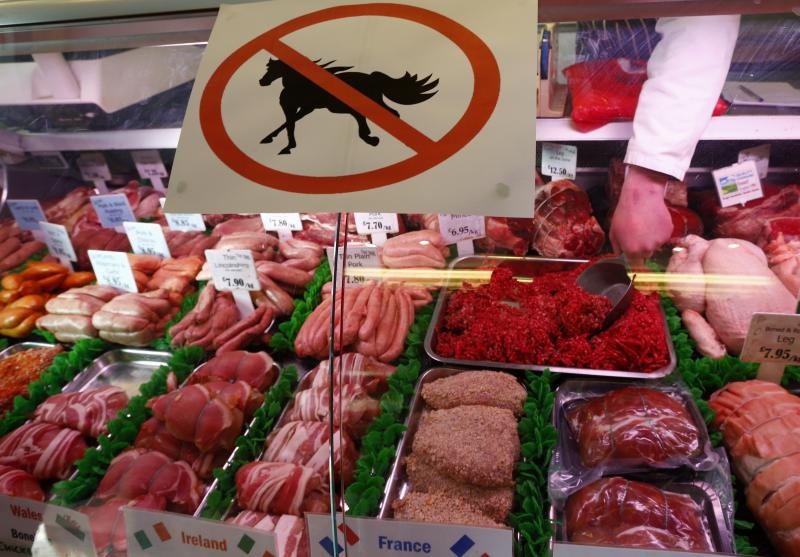The former director of the Spanghero meat company, found guilty along with three others of fraud in connection with the sale of horsemeat for beef, was sentenced on Tuesday by a French court to 24 months in prison, 18 of them suspended. The correctional court, which found ex-director Jacques Poujol guilty on two counts of fraud, also ordered the confiscation of 100,000 euros found in his residence and banned him from operating in the meat industry for two years. He had spent four months in preventive detention.
The horsemeat scandal broke in the United Kingdom in early 2013, then spread to the whole of Europe. It had no health consequences but severely shook consumer confidence.
Poujol, whose lawyers were not present at the sentencing, declined to make any comment on the judge’s ruling.
The former Spanghero director was accused of selling over 500 tonnes of horsemeat for beef in 2012 and 2013 to the manufacturer of pre-cooked meals, Tavola, in a fraudulent deal with Dutch businessman Johannes Fasen.
Fasen, already convicted in the Netherlands in a similar case, was sentenced to two years in prison for fraud, along with a warrant for his arrest. He is banned forever from working in the French meat industry. His right-hand man, Dutchman Hendricus Windmeijer, received a one-year suspended sentence for the same horsemeat fraud.
Finally, Poujol’s accomplice, Patrice Monguillon, CEO of the Spanghero factory, then established in Castelnaudary, southwest France, was given a one-year suspended sentence on one count of fraud related to horsemeat.
On the other hand, charges against the four for organised gang activity were dropped after the court found them irrelevant to the fraud charges since the latter related to “a single action characterised by a sole guilty intention”: deceiving Tavola by making it buy horse instead of beef, at the higher beef price.
The former Spanghero bosses along with Johannes Easen were also convicted of importing 65 tonnes of mutton that had been separated mechanically, a method banned since the mad cow disease crisis, while the two Frenchmen were also found guilty of evidence tampering.
The Brussels Times

